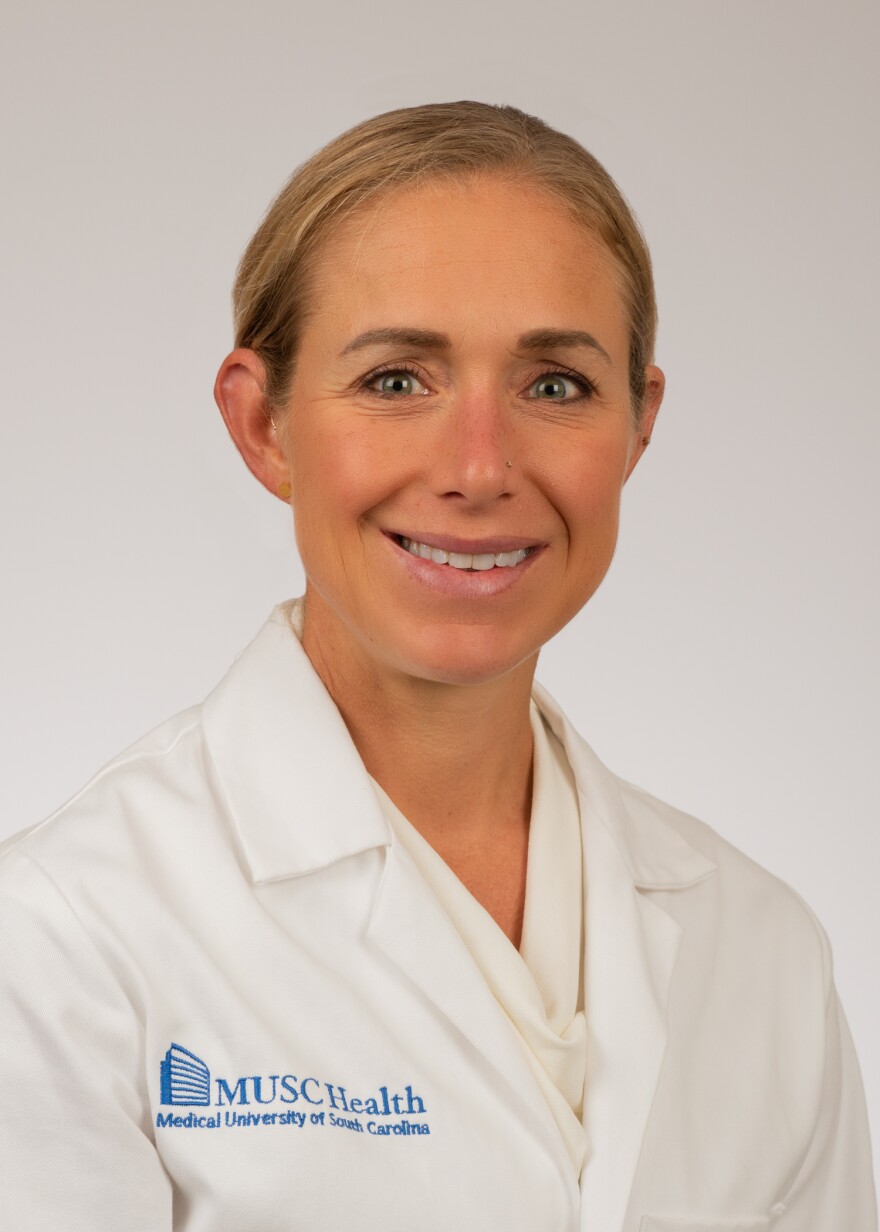This week, Bobbi Conner talks with Dr. Sarah Breevoort about early diagnosis and treatment for ALS (Lou Gehrig’s disease). Dr. Breevoort is a physiatrist and Director of the ALS Clinic at MUSC.
TRANSCRIPT:
Conner: I'm Bobbi Conner for South Carolina Public Radio with Health Focus here at the radio studio for the Medical University of South Carolina in Charleston. There are more than 31,000 patients in the US with ALS, also known as Lou Gehrig's disease. Doctor Sarah Breevoort is here to talk about the importance of early diagnosis and intervention for people with ALS. Doctor Breevoort is a physiatrist, which is a doctor who manages conditions affecting the skeletal and nervous systems. And she's Director of the ALS clinic at MUSC. Doctor Breevoort, tell us about ALS.
Dr. Breevoort: So, ALS, unfortunately, is a very devastating disease. It's a disease essentially, that targets our motor neuron system. So, it inevitably causes weakness of the muscles and ultimately impairments in our ability to breathe, which is ultimately how people pass away from this disorder?
Conner: And why is early diagnosis and intervention so important for people who have this condition?
Dr. Breevoort: It is really important that we diagnose this disease as early as we can, because there are things that we can do even if we don't have a cure. So, there is some disease modifying therapies that we think slow down the progression of ALS. And then more importantly, is the rehabilitative approach, when we can manage all the symptoms and monitor respiratory function, use physical therapy and occupational therapy to help improve function and quality of life for these individuals. And the sooner we get started on these interventions, the better outcomes we have.
Conner: How is ALS accurately diagnosed?
Dr. Breevoort: So that's part of the difficulty with this disease, is that there really is no blood marker or one unique test that's going to tell us definitively if someone has ALS. So, we always say it is painless, progressive weakness that usually starts in a limb or sometimes in our speaking and swallowing muscles, and it progresses without there being any other underlying cause that could cause these type of clinical symptoms and signs. And then that's supported by doing something we call electrophysiologic testing. And we can actually look at the function of the lower motor neuron system.
Conner: And I understand it's quite common for individuals to have a delay in diagnosis.
Dr. Breevoort: The average length of delayed diagnosis for someone with ALS is 18 months. Sometimes this weakness is seen as something else. Often it's thought as maybe coming from arthritis in the neck, or maybe carpal tunnel or something else that's more peripheral or focal. And so, these patients often undergo unnecessary surgeries.
Conner: Well, what are the typical interventions or treatment for people living with ALS?
Dr. Breevoort: In my clinic, I always talk about my three pronged approach to dealing with this disease. First, there's a small role for what we call the disease modifying therapy. So, there are a handful of FDA approved drugs that target some of the pathways we think are responsible for the pathophysiology of ALS and what causes this disease. The sooner we start it, the longer on it, the better outcomes we think we get from those drugs. And then secondly, and more importantly, is everything we can do in these multidisciplinary clinics. And that's a whole team of rehab specialists that really take a comprehensive approach to monitoring this person's breathing functions, identifying areas that they need for mobility, changes in their home, things that we can help them live and function better. And then lastly, I always talk to my patients about the role for hope and faith and family and all the other things that are intangible. And I think that that kind of gives people some sense of control.
Conner: Doctor Breevoort, thanks for this information about ALS.
Dr. Breevoort: Absolutely, it's my pleasure.
Conner: From the radio studio for the Medical University of South Carolina in Charleston, I'm Bobbi Conner for South Carolina Public Radio.
Health Focus transcripts are intended to accurately represent the original audio version of the program; however, some discrepancies or inaccuracies may exist. The audio format serves as the official record of Health Focus programming.



